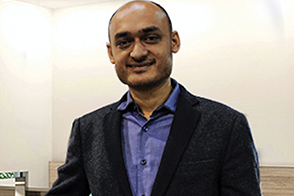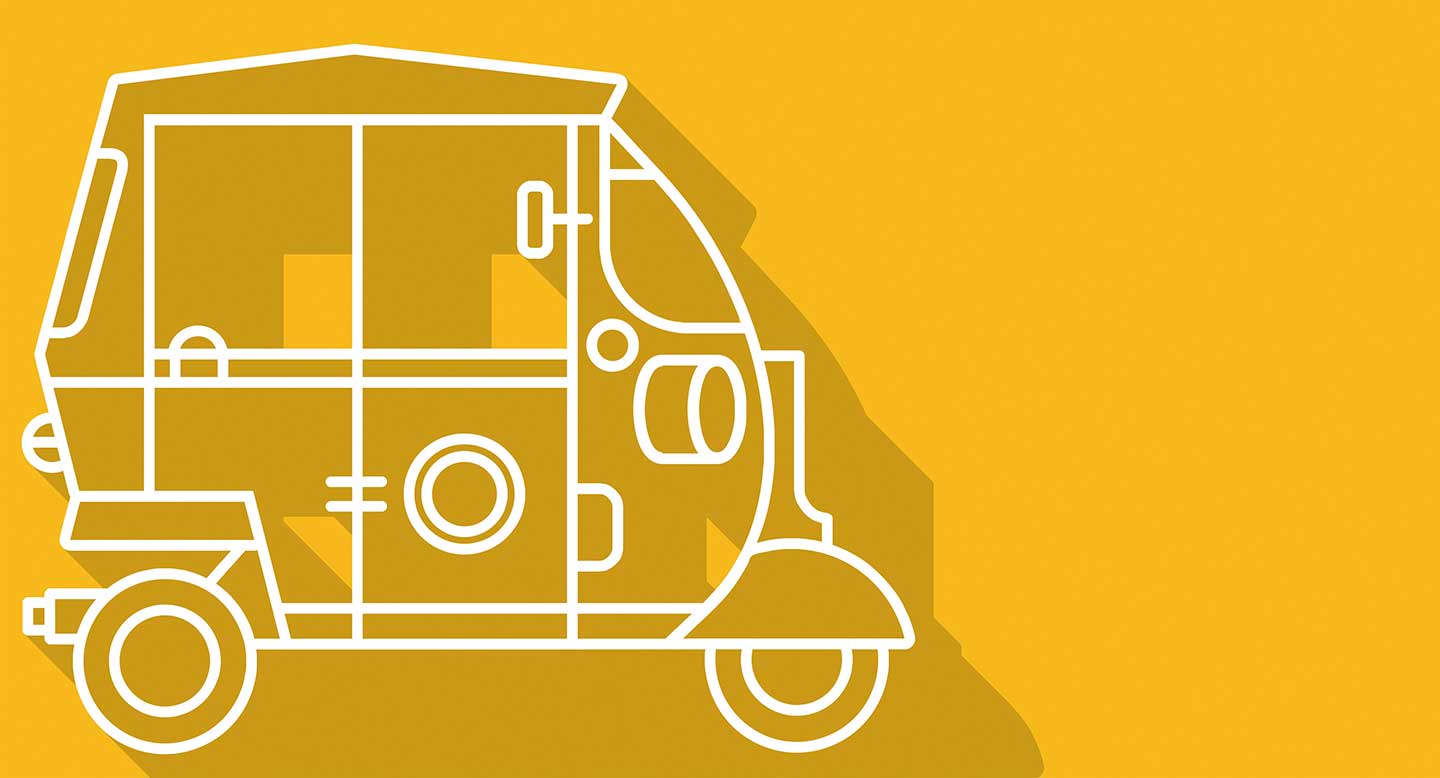What initially began as an auto-hailing app turned into a diversified business when Jugnoo entered the hyperlocal delivery space with Fatafat and Meals. Today, backed by a string of notable investors such as Paytm, Snow Leopard and Freecharge’s Kunal Shah, SoCoMo Technologies, Jugnoo’s parent company, is all set to compete head-on with Uber and Ola in the ride-hailing space, and also eye international markets in the near future.

A recent acquisition spree, a slew of customer-friendly features, a back-to-back funding round and speculations around global expansions seem to be the flavour of the year for the (initially known to be) auto-hailing app, Jugnoo. Yet, ask Samar Singla, its founder, what inspired him to create such a startup and he simply says, curiosity. “We were curious about why the autowallah’s wouldn’t run on meter and we thought, what if we design a pricing and logistics strategy that would be conducive for both (customers and drivers)?” he says. Building on that thought, Singla and his co-founder, Chinmay Agarwal, officially rolled out Jugnoo as an auto ride hailing app, under the parent brand SoCoMo Technologies, in Chandigarh in November 2014.
While it gained reasonably good traction in its first year of operations, by on boarding 7,000 autos and recording half a million rides a month at the end of 12 months across the top 10 Tier II cities, it did start facing operational and financial challenges, when its competitors like Ola began slashing base prices and rate per kilometre, and Uber began moderating cabs at cheaper rates than autos. “We had no choice but to survive through the cash burn ourselves, otherwise we would lose out on serving our customers,” admits Singla.
An Alternative Strategy
To offset the cash burn in the auto segment and to keep the drivers engaged throughout the day, in March 2015, the founders started Fatafat, a hyperlocal delivery service, only to roll it back in a short period (by October 2015) and re-introduce it again in May 2016. Singla attributes that setback to there being a demand-supply gap in managing e-grocery delivery for customers. “When we initially launched, we were doing 1,000 orders a day across Chandigarh, Gurgaon, Indore and Jaipur, but soon realised that we couldn’t manage logistics at that scale. Hence, we later re-introduced the service only in the fruits and vegetables segment,” states Singla. His reasoning being, perishable goods can create higher value addition and tends to be more profitable than groceries segment. Hence, typically in a day, the fruits and vegetables are collected from the market, sorted in warehouses, undergo quality checks and are then sold to customers. The margin, Singla claims, is anywhere between 30 per cent and 40 per cent. “Another key change we brought into this segment was to shift from a two-hour delivery to a ten-hour delivery period. This ensured ease of logistics for us,” he notes.
Since its re-launch this year, the company has acqui-hired SubKuchFresh, an online fresh fruit and vegetable store (in June 2016), which has a presence in Chandigarh, Mohali and Panchkuma, and works with 100 farmers. And, in June 2016, it has also launched an extended delivery service for the B2B segment, called Dodo Deliveries. While it’s currently active only in Chandigarh, where it handles 200 deliveries a day and meets 30 to 40 unique vendor requirements on a daily basis, it soon plans to launch operations in Gurgaon (in July) and gradually expand to more cities.
Riding on Diversification
A third diversification Jugnoo made was in introducing Meals, which delivers home-cooked meals to customers. However, it shut down this business too, in late 2015.
Today, all three services under the SoCoMo parent brand, auto hailing service, Jugnoo, Fatafat and Meals are live on the Android and iOS platform. While Jugnoo is currently present in 35 Tier II cities and has 15,000 autos on board, Fatafat operates only in Chandigarh and does 100 deliveries a day. As for revenues, Jugnoo (the auto app) operates on a rate card of Rs. 10 to Rs. 30 as base fare, or operate on or lesser than a Government set rate card in some states, and for both the auto app and Fatafat, the company takes a commission of 10 per cent.
In fact, recently, to further leverage its customer base, the company introduced a slew of technology updates for its auto-hailing service. Firstly, banking on Apple’s recent announcement of making Siri open for all (including third party apps), Jugnoo introduced a feature wherein customers can ask Siri to book an auto-ride on Jugnoo. Then, following Uber’s announcement of expanding its carpooling service, UberPOOL, to Hyderabad, Kolkata and Mumbai, Jugnoo launched its auto pooling service, in a move to make rides more economical and convenient for customers. “The thought behind this move was quite simple; we had a high density of autos and we wanted to compete on this model with the current public transport services, drive more business for the auto drivers and give customers more cost benefits,” states Singla. This service too, the company has launched only in Chandigarh for the time period.
Making Tech the Norm
Competing with the biggies, Jugnoo has certainly faced its fair share of challenges, the primary among them being, making auto drivers understand the benefits of integrating technology in their daily lives. “We have dedicated teams which frequently conduct training and induction programs for our drivers. Once they come on board, they become very comfortable using the app and further convince their fellow auto-rickshaw drivers also to join Jugnoo,” says Singla.
Just as most other startups, though Jugnoo has relied largely on word of mouth to get new customers on board, it has also used auto drivers as brand ambassadors to lure customers to register on the app, conducted referral campaigns and more recently, has stepped up its online presence. Take for example Jugnoo’s Facebook Bot; instead of the user having to download the Jugnoo app, he/she can simply book a ride by typing a text message on Facebook, or opting for ‘Book a Ride’, post which Jugnoo will authenticate the user through their login details and complete the process. The benefit, Singla states, is it not only saves phone space for those who already have plenty of apps on their smartphone, but also bodes well with a tech-savvy, social media savvy generation.
Bringing in the bucks
Jugnoo raised its first external capital, a seed round totalling US $3 million from Kirloskar Group, Vikas Taneja (Partner & MD, BCG Group), Just Weil (who has also invested in Facebook and Yandex), Rakesh Mathur (Co-founder of Junglee and Webaroo) and actress Saumya Tandon in April 2015. While funds from the initial round were used for expansions within the country and improving its tech team, it soon raised a Series A round of US $5 million from Paytm and Snow Leopard in June 2015, to go aggressive on growth and marketing. In fact, this was around the time when it also began onboarding women drivers onto its auto-hailing platform.
Come November 2015, Jugnoo again raised a Series B round of US $10 million from existing investors Paytm and Snow Leopard, and new investors Rocketship.vc and Kunal Shah (CEO of Freecharge). While it initially received only US $3 million, it raised a second tranche of US $2.5 million in January 2016, and closed the round with a third tranche of US $4.5 million in April 2016.
Going a tad bit aggressive on growth, the company is already geared up to raise a Series C of US $30 million, for which it’s actively seeking out investors. “The funds will primarily be used to grow our hyper local delivery division,” he says.
Focussing on Growth
With 300 employees currently on board, the company is recording a month-on-month growth rate of 20 per cent to 30 per cent, which it seeks to sustain over the next two to three years.
While its goal in India is clearly laid out; to launch the auto hailing app in 200 cities and take Fatafat to 40 more cities, it is also eyeing international expansions, with plans of establishing a presence in markets such as Africa, South America and South-East Asia. “The vision is to become a leading player in the ride-service space and hyper local delivery space in India in the near future,” says Singla on a concluding note.
Snapshot
Jugnoo
Year: 2014
City: Chandigarh
Founders: Samar Singla and Chinmay Agarwal
Concept: Under parent brand SoCoMo Technolgoies, operates an auto-hailing app, a hyperlocal delivery app –Fatafat and meals app, Meals.
Investors: Kirloskar Group, Vikas Taneja (Partner & MD, BCG Group), Just Weil (who has also invested in Facebook and Yandex), Rakesh Mathur (Co-founder of Junglee and Webaroo), Saumya Tandon (Actress), Paytm, Snow Leopard, Rocketship.vc and Kunal Shah (CEO of Freecharge).




